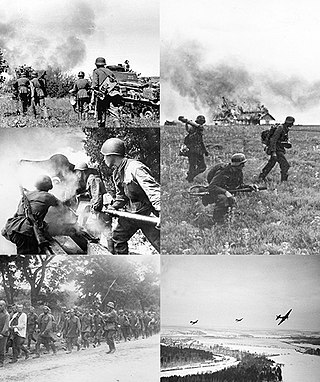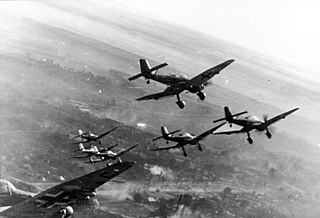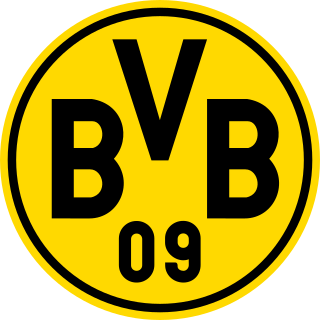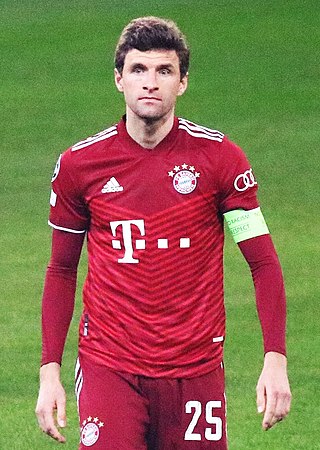
The Berlin Wall was a guarded concrete barrier that encircled West Berlin of the Federal Republic of Germany from 1961 to 1989, separating it from East Berlin and the German Democratic Republic. Construction of the Berlin Wall was commenced by the government of the GDR on 13 August 1961. It included guard towers placed along large concrete walls, accompanied by a wide area that contained anti-vehicle trenches, beds of nails and other defenses. The primary intention for the Wall's construction was to prevent East German citizens from fleeing to the West.

Cologne is the largest city of the German state of North Rhine-Westphalia and the fourth-most populous city of Germany with nearly 1.1 million inhabitants in the city proper and over 3.1 million people in the Cologne Bonn urban region. Cologne is also part of the Rhine-Ruhr metropolitan region, the second biggest metropolitan region by GDP in the European Union. Centered on the left (west) bank of the Rhine, Cologne is about 35 km (22 mi) southeast of the North Rhine-Westphalia state capital Düsseldorf and 25 km (16 mi) northwest of Bonn, the former capital of West Germany.

Franz Kafka was a German-speaking Bohemian Jewish novelist and writer from Prague. He is widely regarded as one of the major figures of 20th-century literature. His work fuses elements of realism and the fantastic. It typically features isolated protagonists facing bizarre or surrealistic predicaments and incomprehensible socio-bureaucratic powers. It has been interpreted as exploring themes of alienation, existential anxiety, guilt, and absurdity. His best known works include the novella The Metamorphosis and novels The Trial and The Castle. The term Kafkaesque has entered English to describe absurd situations like those depicted in his writing.

Frankfurt am Main is the most populous city in the German state of Hesse. Its 773,068 inhabitants as of 2022 make it the fifth-most populous city in Germany, and it is the only city in the country rated as an "alpha world city" according to GaWC. Located in the foreland of the Taunus on its namesake Main, it forms a continuous conurbation with Offenbach am Main; its urban area has a population of over 2.7 million. The city is the heart of the larger Rhine-Main metropolitan region, which has a population of more than 5.8 million and is Germany's second-largest metropolitan region after the Rhine-Ruhr region and the fourth biggest metropolitan region by GDP in the European Union. Frankfurt is home to the European Central Bank, one of the institutional seats of the European Union, while Frankfurt's central business district lies about 90 km (56 mi) northwest of the geographic center of the EU at Gadheim in Lower Franconia. Like France and Franconia, the city is named after the Franks. Frankfurt is the largest city in the Rhenish Franconian dialect area.

Germany, officially the Federal Republic of Germany (FRG), is a country in Central Europe. It is the nineteenth-most populous country in the world and the most populous member state of the European Union. Germany lies between the Baltic and North Sea to the north and the Alps to the south. Its 16 constituent states have a total population of over 84 million in an area of 357,600 km2 (138,100 sq mi). It borders Denmark to the north, Poland and the Czech Republic to the east, Austria and Switzerland to the south, and France, Luxembourg, Belgium, and the Netherlands to the west. The nation's capital and most populous city is Berlin and its main financial centre is Frankfurt; the largest urban area is the Ruhr.

Hermann Wilhelm Göring was a German politician, military leader, and convicted war criminal. He was one of the most powerful figures in the Nazi Party, which governed Germany from 1933 to 1945.

Luxembourg, officially the Grand Duchy of Luxembourg, is a small landlocked country in Western Europe. It is bordered by Belgium to the west and north, Germany to the east, and France to the south. Its capital and most populous city, Luxembourg, is one of the four institutional seats of the European Union and the seat of several EU institutions, notably the Court of Justice of the European Union, the highest judicial authority. Luxembourg's culture, people, and languages are greatly influenced by France and Germany; for example, Luxembourgish, a Germanic language, is the only national language of the Luxembourgish people and of the Grand Duchy of Luxembourg, French is the only language for legislation, and all three – Luxembourgish, German and French – are used for administrative matters in the country.

Liechtenstein, officially the Principality of Liechtenstein, is a doubly landlocked German-speaking microstate located in the Alps between Austria and Switzerland. Liechtenstein is a semi-constitutional monarchy headed by the prince of Liechtenstein of the House of Liechtenstein, currently led by Hans-Adam II. Liechtenstein is bordered by Switzerland to the west and south and Austria to the east and north. It is Europe's fourth-smallest country, with an area of just over 160 square kilometres and a population of 39,790. It is the world's smallest country to border two countries.

The Nuremberg trials were held by the Allies against representatives of the defeated Nazi Germany for plotting and carrying out invasions of other countries across Europe and atrocities against their citizens in World War II.

Operation Barbarossa was the invasion of the Soviet Union by Nazi Germany and many of its Axis allies, starting on Sunday, 22 June 1941, during World War II. It was the largest and costliest land offensive in human history, with around 10 million combatants taking part, and over 8 million casualties by the end of the operation.

Rammstein is a German Neue Deutsche Härte band formed in Berlin in 1994. The band's lineup—consisting of lead vocalist Till Lindemann, lead guitarist Richard Kruspe, rhythm guitarist Paul Landers, bassist Oliver Riedel, drummer Christoph Schneider, and keyboardist Christian "Flake" Lorenz—has remained unchanged throughout their history, along with their approach to songwriting, which consists of Lindemann writing and singing the lyrics over instrumental pieces the rest of the band has completed beforehand. Prior to their formation, some members were associated with the punk rock acts Feeling B and First Arsch.

Reinhard Tristan Eugen Heydrich was a high-ranking German SS and police official during the Nazi era and a principal architect of the Holocaust.

World War II or the Second World War was a global conflict between two alliances: the Allies and the Axis powers. Nearly all of the world's countries, including all of the great powers, participated in the conflict, and many invested all available economic, industrial, and scientific capabilities in pursuit of total war, blurring the distinction between civilian and military resources. Aircraft played a major role, enabling the strategic bombing of population centres and delivery of the only two nuclear weapons ever used in war. It was by far the deadliest conflict in history, resulting in 70–85 million fatalities. Millions died due to genocides, including the Holocaust, as well as starvation, massacres, and disease. In the wake of Axis defeat, Germany, Austria, Japan and Korea were occupied, and war crime tribunals were conducted against German and Japanese leaders.
Germans are the natives or inhabitants of Germany, or sometimes more broadly any people who are of German descent or native speakers of the German language. The constitution of Germany, implemented in 1949 following the end of World War II, defines a German as a German citizen. During the 19th and much of the 20th century, discussions on German identity were dominated by concepts of a common language, culture, descent, and history. Today, the German language is widely seen as the primary, though not exclusive, criterion of German identity. Estimates on the total number of Germans in the world range from 100 to 150 million, most of whom live in Germany.

The UEFA European Football Championship, less formally the European Championship and informally the Euros, is the primary association football tournament organised by the Union of European Football Associations (UEFA). The competition is contested by UEFA members' senior men's national teams, determining the continental champion of Europe. It is the second-most watched football tournament in the world after the FIFA World Cup; the Euro 2016 final was watched by a global audience of around 600 million. The competition has been held every four years since 1960, except for 2020, when it was postponed until 2021 due to the COVID-19 pandemic in Europe, but kept the name Euro 2020. Scheduled to be in the even-numbered year between FIFA World Cup tournaments, it was originally called the European Nations' Cup before changing to its current name in 1968. Since 1996, the individual events have been branded as "UEFA Euro [year]".

The Germany national football team represents Germany in men's international football and played its first match in 1908. The team is governed by the German Football Association, founded in 1900. Between 1949 and 1990, separate German national teams were recognised by FIFA due to Allied occupation and division: the DFB's team representing the Federal Republic of Germany, the Saarland team representing the Saar Protectorate (1950–1956) and the East Germany team representing the German Democratic Republic (1952–1990). The latter two were absorbed along with their records; the present team represents the reunified Federal Republic. The official name and code "Germany FR (FRG)" was shortened to "Germany (GER)" following reunification in 1990.

The Dunkirk evacuation, codenamed Operation Dynamo and also known as the Miracle of Dunkirk, or just Dunkirk, was the evacuation of more than 338,000 Allied soldiers during the Second World War from the beaches and harbour of Dunkirk, in the north of France, between 26 May and 4 June 1940. The operation commenced after large numbers of Belgian, British, and French troops were cut off and surrounded by German troops during the six-week Battle of France.

Heidi Klum is a German-American model, television host, producer, and businesswoman. She appeared on the cover of the Sports Illustrated Swimsuit Issue in 1998 and was the first German model to become a Victoria's Secret Angel.

Ballspielverein Borussia 09 e. V. Dortmund, often known simply as Borussia Dortmund or by its initialism BVB, is a German professional sports club based in Dortmund, North Rhine-Westphalia. It is best known for its men's professional football team, which plays in the Bundesliga, the top tier of the German football league system. The club have won eight league championships, five DFB-Pokals, one UEFA Champions League, one Intercontinental Cup, and one UEFA Cup Winners' Cup.

Thomas Müller is a German professional footballer who plays for Bundesliga club Bayern Munich and the Germany national team. He has been deployed in a variety of attacking roles – as an attacking midfielder, second striker, centre forward, and on either wing. Regarded as one of the best players of his generation, Müller has been praised for his positioning, teamwork, stamina, and work-rate, and has shown consistency in both scoring and creating goals.





















